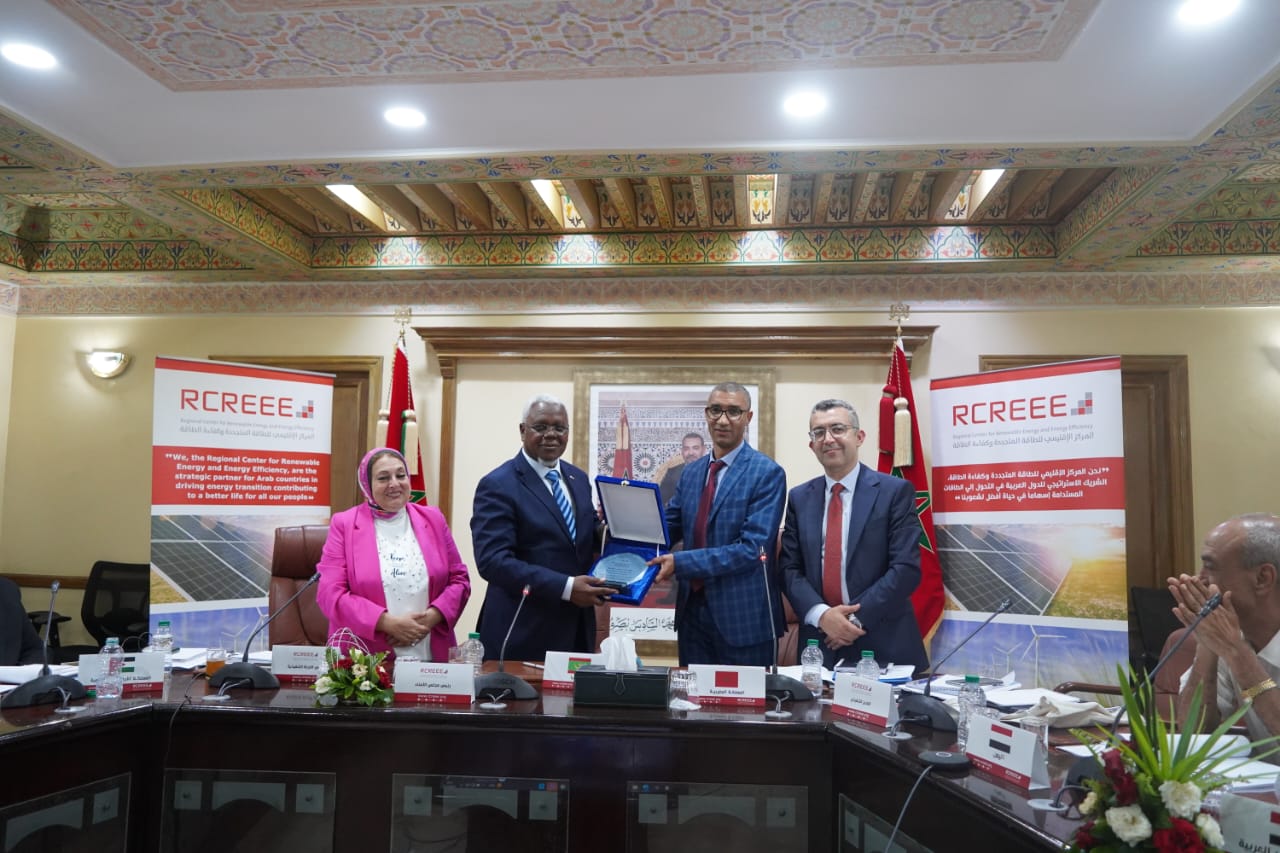UNDP and RCREEE join forces revealing Arab countries leap progress in Renewables through the 2019 edition of Arab Future Energy Index (AFEX)
By the end of 2018, the total installed capacity in Arab countries of new renewables (excluding hydro) surpassed 7 GW, more than double the capacity recorded two years ago.
December 31, 2019 – Cairo: In its 2019 edition AFEX RE report confirms the strong commitment of the Arab counties to embrace strong forward policies and capture the immense value of the RE business.
The report tracks on ground development of renewable energies in the region highlighting the domination of Wind and PV technologies in the region’s market. This year, Egypt, Jordan, and Morocco have equal scores and are on the top of the AFEX RE ranking. Among the top 10 countries also are UAE, Tunisia, Algeria, Palestine, Lebanon, KSA and Bahrain. Several other Arab countries have shown noteworthy achievements towards more reliance on renewable energies and attracting private investments such as Oman, Mauritania, Djibouti, Qatar, Iraq and Kuwait.
AFEX RE 2019 report shows how the market response to the Arab region renewable energy business has been overwhelmingly positive, demonstrating market confidence in the region’s vast renewable energy potential and investment environment.
Besides, AFEX report expands its scope through covering the four pillars of Arab Countries market structure, policy frameworks, institutional capacities and scaling up finance as the foundations for accelerating renewable energy solutions across the region, as well as renewables solution in crises context. Accordingly, it projected a number of sustainable solutions that helped with the arising energy challenge at countries facing conflict as well as those seeing growing levels of fragility owing to influx of refugees and internally displaced persons (IDPs) from neighboring countries. This includes Djibouti, Iraq, Jordan, Lebanon, Libya, Palestine, Somalia, Sudan, Syria and Yemen, most of which already faced strained levels of energy security prior to the expansion of crisis.
The Report finds:
- PV capacities have exceeded wind capacities in the Arab Region (3.2 GW versus around 3 GW). This reflects that many Arab countries are seizing the immense value of cost reduction and modularity of PV systems compared to other renewable technologies. PV installations are widespread all over the region, be it utility scale or small/medium decentralized systems.
- Seven Arab countries (Egypt, Morocco, Iraq, Sudan, Syria, Jordan and Algeria) possess 90% of the current RE capacities in the region. Egypt and Morocco together have 46% of the total installed capacities.
- The total accumulative investments in renewable energy projects over the past decade (excluding hydro) are estimated at around USD 15 billion. This is a reflection of the fact that in 2008 only four Arab countries had operational renewable energy capacities, while in 2018, all the countries have renewable energy installations.
- Based on the announced targets for 2035, the region will have more than 190 GW of operational capacities. The most ambitious target in terms of the share of the power mix is Djibouti, where he target would reach 100% renewables by 2035.
- By the end of 2018, 8 Countries (Algeria, Egypt, Jordan, Lebanon, Morocco, Palestine, Tunisia, and UAE ) were the only countries in which private actors practically owned and operated utility scale renewable energy power plants.
- Due to its financial efficiency, competitive biddings and auctions for private utility scale renewable energy projects are becoming the preferred option for the Arab region. Over a dozen of competitive bids and auctions for private investments were held over the past couple of years in the Arab countries, such as Algeria, Bahrain, Egypt, Tunisia, Jordan, Kuwait, Lebanon, Oman, Palestine, Qatar, Saudi Arabia and the UAE.
- Technologies of interest included storage, not only thermal storage for CSP plants, as the case is for Morocco and UAE, but also battery storage with PV systems in Lebanon and Jordan. Furthermore, hydro pumped storage projects are under consideration in Egypt, Jordan and UAE.
- Most of the Arab countries (14 countries) enjoy an electrification rate (share of population with access to electricity) above 98%. Only seven Arab countries have lower electrification rates, including Syria, Comoros, Sudan, Djibouti, Mauritania, Somalia and Yemen.
- Renewable energy sector jobs are becoming noticeable in some countries such as Egypt, Jordan, Morocco, Tunisia, and Lebanon.
Among the key challenges remaining for the region are the capacity of the electricity transmission and distribution grids for more renewable generation, which has triggered grid expansions and enforcement in many countries. In addition, the region still has to work on Increasing the citizen’s appetite and opening more the power generation market to allow private-to-private sale of electricity from renewable sources.
“AFEX 2019 report shows us that important examples are arising across the region on how innovative solutions can help de-risk the environment for scaled up investments in sustainable energy, with the Arab region now hosting some of the world’s largest solar facilities” Says Director, UNDP Regional Hub for Arab States, Mr. Khaled Abdelshafi
“This report is launched as a result of collaboration between RCREEE and the United Nation Development Program (UNDP). I would like to express my gratitude to the authors and contributors of this publication. This amazing work would not have been produced without the efforts of the authors, collaborators and the relentless support of the UNDP.“ Says RCREEE Executive Director, Dr. Ahmed Badr
About the Arab Future Energy Index (AFEX) report
AFEX is the first Arab index dedicated to monitoring and analyzing sustainable energy competitiveness and governance in the region (20 countries) and offers both quantitative and qualitative assessments on key RE/EE markets.
AFEX was first launched in 2013, ranking Countries under more than 28 indicators that illustrate key energy market aspects including Finance and Investment Climate, Institutional Capacity, Policy Framework and Market Structure. Moreover, the publication provides a great opportunity for Arab countries to learn from each other’s achievements and success stories in implementing energy efficiency measures, policies and technologies.
The full report can be downloaded here: https://www.rcreee.org/node/3583/
Media contact
Yasmeen Oraby, Senior Operations Specialist (Yasmeen.oraby@rcreee.org)

